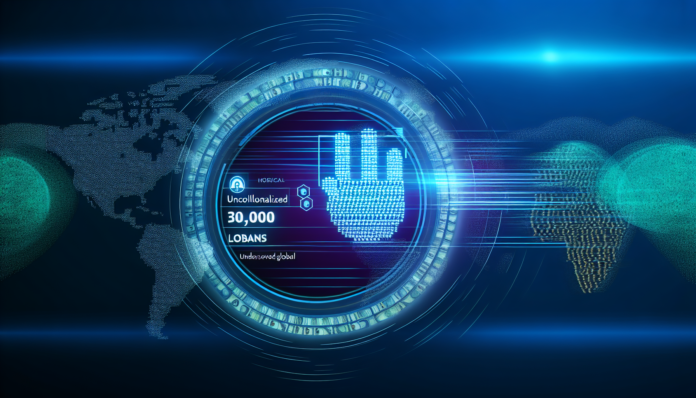Divine Research has introduced a groundbreaking approach to crypto lending by issuing uncollateralized loans verified through Sam Altman’s World ID digital identity protocol. Since December, the San Francisco-based fintech has disbursed approximately 30,000 loans denominated in USDC, targeting a demographic largely underserved by traditional financial institutions. By leveraging World ID’s biometric iris-scanning technology and zero-knowledge proof system, Divine Research bypasses conventional credit checks and collateral requirements, transforming the accessibility and inclusivity of financial services across the globe.
World ID: A Novel Foundation for Trust in Finance
At the core of Divine Research’s lending model is World ID, a blockchain-based digital identity system developed by OpenAI CEO Sam Altman as part of his World project. World ID uses a specialized device called the Orb that performs biometric iris scanning to create a unique, tamper-proof “IrisCode” for each user. This biometric data is then encrypted and securely stored on a blockchain, providing a privacy-preserving way to verify human uniqueness without collecting or exposing personal information.
This mechanism is crucial for Divine Research as it ensures that borrowers cannot open multiple accounts, reducing fraudulent attempts to exploit the lending service. Instead of relying on invasive know-your-customer (KYC) processes or credit histories, the platform establishes trust through the user’s verified uniqueness — a zero-knowledge proof that the person is real and singular on the system.
Extending Credit to the Underserved
Divine’s loans are typically microloans under $1,000 in USDC and are predominantly aimed at overseas borrowers who are excluded from traditional banking frameworks. These include everyday individuals such as teachers, small vendors, and gig workers who have reliable internet access but struggle to access credit due to lack of collateral or formal credit histories. Founder Diego Estevez describes the initiative as “microfinance on steroids,” highlighting the platform’s ambition to democratize finance on a global scale.
By offering quick, permissionless access to capital, Divine Research taps into a significant market segment left behind by banks due to cost inefficiencies and regulatory hurdles. This model not only fosters financial inclusion but also empowers individuals to meet urgent financial needs or invest in economic opportunities that would otherwise be out of reach.
The Risk Model: High Interest and Default Rates
Operating without traditional collateral and credit scores entails inherent risk. Divine Research confronts this challenge with interest rates ranging from 20% to 30%, compensating for a reported first-loan default rate approaching 40%. Estevez acknowledges that these high rates are necessary to offset losses but points to the platform’s design to sustain profitability. Additionally, borrowers receive free World tokens, cryptocurrency rewards that Divine can partially reclaim to further mitigate risk.
This lending approach allows everyday investors to participate as lenders, providing liquidity and earning returns despite the high default levels. Divine has engineered its economic model such that, after accommodating defaults and operational costs, liquidity providers are expected to realize profits. This opens opportunities for retail investors seeking exposure to emerging fintech markets with higher risk and reward profiles.
Privacy and User Experience Advantages
A major advantage of Divine Research’s approach lies in the privacy-preserving aspect of World ID. Borrowers undergo identity verification without revealing sensitive personal data or undergoing laborious KYC procedures commonly associated with lending. This improves user experience by simplifying loan access and reducing friction during onboarding.
Moreover, the zero-knowledge proofs embedded within World ID enable Divine to verify critical identity factors while respecting borrower anonymity and data security, aligning with growing consumer demand for privacy-conscious financial services.
Broader Implications for Financial Inclusion
Divine Research’s model exemplifies how innovative digital identity technology can unlock new pathways to financial inclusion. By removing barriers related to credit history and collateral, as well as cutting reliance on centralized credit bureaus and banking infrastructure, the platform can serve vulnerable populations often excluded from formal credit markets.
This adoption could be particularly transformative in emerging economies where mobile internet penetration exists but banking infrastructure lags. Microloans delivered through an uncollateralized, trust-based digital identity system offer a powerful tool to stimulate economic activity and reduce inequality.
Challenges and Questions Ahead
Despite its promise, Divine Research’s unbacked lending model is not without concerns. The relatively high default rate signals significant credit risk, raising questions about the sustainability of scaling this approach. The effectiveness of risk mitigation strategies like high interest rates and token reclaiming remains to be tested over the long term.
Furthermore, the ethical and regulatory landscape around biometric data use and privacy is evolving. While World ID employs blockchain and zero-knowledge proofs for security, public scrutiny and potential regulatory actions could influence user trust and operational scope.
The permissionless nature of the loans also places responsibility on the platform to balance innovation with consumer protection, especially when serving financially vulnerable borrowers. Transparent risk disclosures, responsible lending practices, and continuous monitoring will be essential for maintaining credibility and minimizing harm.
The Future of Crypto Lending and Digital Identity
Divine Research’s integration of World ID technology illustrates the potential convergence of biometric digital identities and decentralized finance (DeFi) lending. The adoption of unique, privacy-preserving identity verification methods may define the next wave of financial innovation, especially for products targeting underserved communities.
As AI and digital identity systems evolve, projects like World aim to expand their authentication frameworks beyond humans to AI agents, potentially enhancing security and efficiency in broader digital ecosystems. This technological evolution could further empower DeFi platforms to deliver sophisticated, trust-minimized financial products at scale.
In conclusion, Divine Research’s uncollateralized crypto lending service, underpinned by Sam Altman’s World ID, represents a bold experiment in reimagining credit access for the underbanked. While offering a compelling blueprint for greater financial inclusion and user privacy, the model also underscores the challenges of managing risk without traditional collateral. Its ongoing efficacy will provide valuable lessons for the future of fintech, digital identity, and global microfinance.















